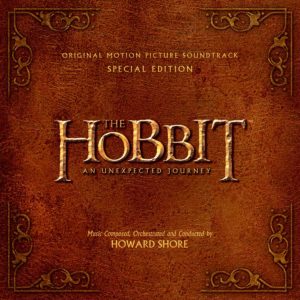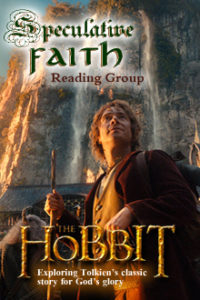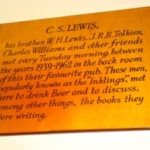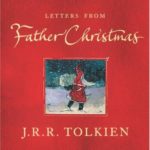Reading Is Worship 12: Desiring God As Fantasy Fans
Stories are not mere “entertainment,” or means to morality, or distractions for children. Over 12 parts, this series has explored this theme: Reading stories is an act of worship.
For we as readers (or viewers, or listeners), what does this practically look like in daily life?
It means we may fight against idolatrous “worship,” of a story’s experience, of fighting for a Cause of specific genre promotion, or of the craft of writing your own stories. Perhaps most perilous in speculative story fans’ lines of work, we must identify “weirdness”-idolatry and fight it with Biblical cures. Fantastic tales aren’t wonderful only because they’re “weird” or niche, but because they have purpose beyond themselves and are echoes of the true Story.
God glorifies Himself across a “color spectrum,” not only in a single shade of light brighter or darker. We see this in His true Story of reality. And we see His self-glorification — which should move us to worship — either through man’s stories, or over them or by contrast.
Throughout all this, I have thought more often about why I love stories. It’s not because I only want entertainment as its own end, is it? We all have long ways to go! Yet I’ve been encouraged to find this: While I may not always want to worship God through the stories I enjoy, at least I want to want to do this. For that desire, I rejoice. Similarly, even if I don’t always desire God, at least I’m wanting to desire Him. Only He could do that. (Disclaimer: Desiring God is a great ministry about this. Also, fortunately its name is not trademarked.)
Now as we come to the end(?) of this series, I’m curious how that looks in your life.
Especially as Thanksgiving and Christmas nears, this is a premier time to be a fantasy fan. Maybe it’s my imagination, but new Christian speculative stories just keep coming. This last summer was an excellent season of fantastic films, even beyond The Avengers (still the best 2012 film thus far, I say). And of course next month, merely 30 days from yesterday for Americans, we have the release of The Hobbit: An Unexpected Journey, the first of a trilogy.
If one views worship as more than singing or overt “religious” tasks — an easy argument to make, but more difficult to put in practice! — we have a whole hymnbook-full of “songs.”
I’ll start with examples only because I’m the columnist. By no means am I a pious paragon of worshiping God “100 percent” in all I do. No one can be, this side of Heaven. Yet that’s no reason not to try. Christians work out our own salvation, to please the One Who saved us, knowing it’s He Who works in us (Phil. 2: 12-13). We’re not fatalists. True faith brings good works (James). That doesn’t leave out any life area (Rom. 12:1-2). “The road goes ever on.”
So how is your God-glorifying, worshipful, speculative-story “singing” voice?
(Partial) diary of a speculative-story fan

Yes, I’ve already pre-ordered mine. More-patient and less spoiler-averse people than I can hear a slightly-abridged version of the score (no pauses) here.
Thursday, Nov. 1 —
Began my annual listen-through of the The Lord of the Rings complete score by Howard Shore. For the last several years I’ve tried to do this every year, as a lead-up to Christmas music. I love this film score. In my view it is the best in the world, perhaps soon to be equaled by Shore’s film score for The Hobbit. I don’t know Shore’s motives, yet in his music he so perfectly captures the majesty of Tolkien’s subcreation of Middle-earth and its lands, peoples, and stories. Music is God’s creation; Shore and others can only repeat it in varying ways. They can only polish the silver cast from God’s own molds.
As I listen, I’m not only taken back to Middle-earth, but rejoicing in echoes of good clashing against evil. Delighting in the whimsy of the Shire and the Hobbits. Being captivated by the ancient mysticism of Elves. Listening to my own heart beat to the pulse of battle.
And I’m tracing the echoes back to the source: from (the presumably non-Christian) Shore’s music, to the Christian Tolkien’s creations, to the Author and the Story that inspired him.

Friday, Nov. 9 —
Stayed up late until about 12:30 a.m., to finish Freeheads, the final volume in sci-fi author Kerry Nietz’s DarkTrench Saga series. Now I enjoy reading “secular” novels, sometimes, and more often enjoying “secular” films (such as the aforementioned The Avengers). Yet there is just something to a Christian novel, by a Christian author, who isn’t merely writing a story to repeat truth or to entertain, but to flesh out or even “incarnate” Biblical truth with what-if questions in an entertaining and skillful way. I can only compare it to being in church and being glad to hear the singing of a crowd — and even more joyful to hear my wife’s voice in the midst. Here is a talented voice, a dear sister, the artful worship of someone who is family.
Saturday, Nov. 10 —
Afternoon: I facilitate an eighth reading-group session at my church for The Hobbit. Today we read through much of chapter 8, “Flies and Spiders.” We discuss questions such as: “Why do so many stories include the idea of a ‘dark forest’ or ‘dark place,’ where a very land or tree can be evil? (Examples: Snow White, Hansel and Gretel, Pilgrim’s Progress.)”
I remain convinced that God wants us to worship not only individually but collectively as a body of believers. Thus, our story-enjoyment is best done more often together as His family.
Evening: I start re-reading The Lord of the Rings: The Two Towers. Weeks ago I finished re-reading The Fellowship of the Ring, then took a break for DarkTrench book 3. Now back to LotR. Again I’m lost in the grandeur of Tolkien’s masterpiece. Battles remind me of the need to fight lies with God’s truth. Tears shed at the death of Boromir remind me of the evil of death yet also Christ’s hope of resurrection. The whole story echoes true, final victory.
Wednesday, Nov. 14 —
A bonus item I threw into a Christmas order arrived: “Heaven’s Bright Sun,” an older album from my new- favorite Irish synth/prog rock band. Its Christian emphasis and roots are clear to hear; the band’s lead vocalist, Joanne Hogg, is a Christian. This live-concert album includes greatest hits, including the title track from their “Journey Into the Morn” album.
Again, while I love The Lord of the Rings and other music by non-Christian composers, there is simply something different about listening to the worship of spiritual family members.
Especially when they name a song after a “Be Thou My Vision” line, and it sounds like this.

Thursday, Nov. 15 —
In the morning I finish re-viewing the Star Trek: Deep Space Nine episode “Starship Down.” In this, the vessel Defiant is attacked by Jem’Hadar warships, and plunges after them into the depths of a gas-giant planet. One blast severely wounds Captain Sisko, leaving only him and Major Kira Nerys, a very religious Bajoran woman, on the darkened bridge.
Kira tries to keep Sisko awake by talking about mundane work issues, but Sisko is falling asleep. They realize they always talk about work, and Kira confesses that Sisko being the revered Emissary means she finds it hard to relax and be herself around him. In response, Sisko asks Kira if she can tell him a story. [Later …] Sisko’s condition worsens. Kira begins praying over his prone body in her native tongue.
Of course, the captain survives. And Gene Roddenberry would have hated this scene, which gives me no small pleasure. I appreciate Roddenberry and love original Star Trek, but fans who love Jesus even more know how overtly anti-God TOS’s themes often were. What irony that in Deep Space Nine secular humanism finally faced real challenges, and religion finally got its due respect — especially a true religion with actual deities like the Bajoran faith.
Yes, the Bajorans have a made-up religion. Yes, the other legacy of Star Trek is promoting humanism, feminism, “tolerance” and other mirror-universe “moral majority” notions. And it cannot compare to a more-truthful science-fiction told skillfully by a family member.
But to see a positive, attractively presented character exhibiting alternate-world faith made me think of true faith, and made me grateful He answers real prayers in the real world.
What’s your own partial speculative-story worship diary?














































Man, you are pretty hardcore. My own diary would be nowhere near as thoughtful. I usually buy a book, read it, and log it plus review it on Goodreads. Maybe think about it now and then if the idea strikes an urge in me.
We discuss questions such as: “Why do so many stories include the idea of a ‘dark forest’ or ‘dark place,’ where a very land or tree can be evil?
Probably because either direct experience or cultural memory remind them that forests are very scary places to be in even with a lantern and a fire. I often cut across the local school on the way home, sometime fairly late at night. It’s bounded by a lot of woods, and despite knowing how thin they are, something about staring into that darkness can give me a shiver.
If it helps, for a lot of this I had to think hard over the past two weeks — perhaps it doesn’t seem as spiritual when this is the only litany of more-“aware” specific speculative-story enjoyments I can find during that time!
This is a great question. Stories are great. God is great. Now what are supposed to do?
In my experience, stories are usually not an effective way to waste copious amounts of God’s time. When I’m lazy and crabby and don’t want to do what I need to do, I find that I can’t have fun enjoying stories, in any form of media. For me, wasteful (and harmful) entertainment comes in the form of browsing the web aimlessly, typing stupid (or worse) phrases into the search engine, daydreaming, and making and consuming cup after cup of coffee or tea.
I want God’s glory to radiate out of the book or the movie or the videogame, straight into reality. I want to experience the honor and the meaningfulness that I find in great stories. But I’m a wretched sinner, and instead of re-expressing the glory that I see in the stories to others, I waste my hours and long for an escape from this crappy life.